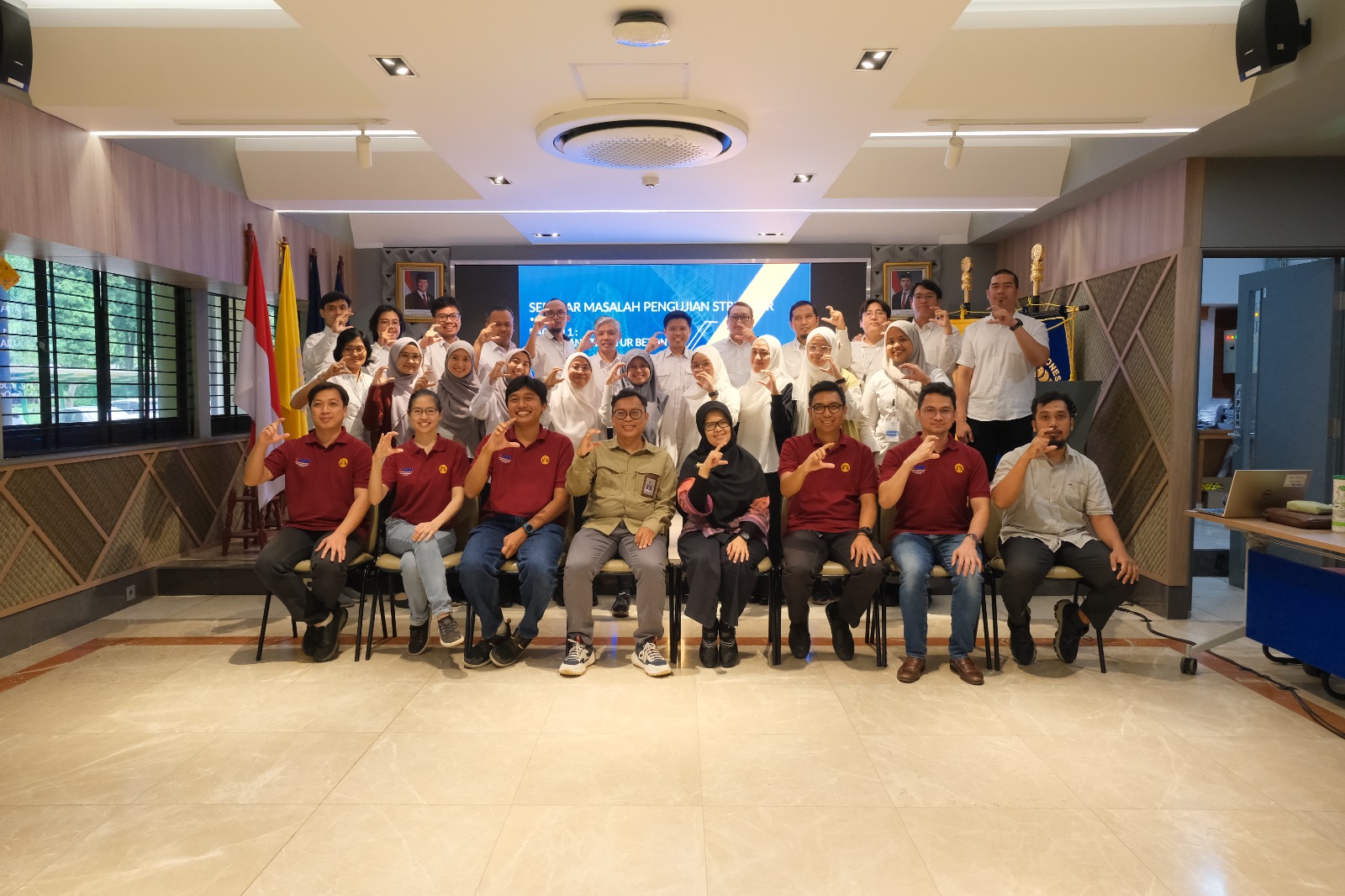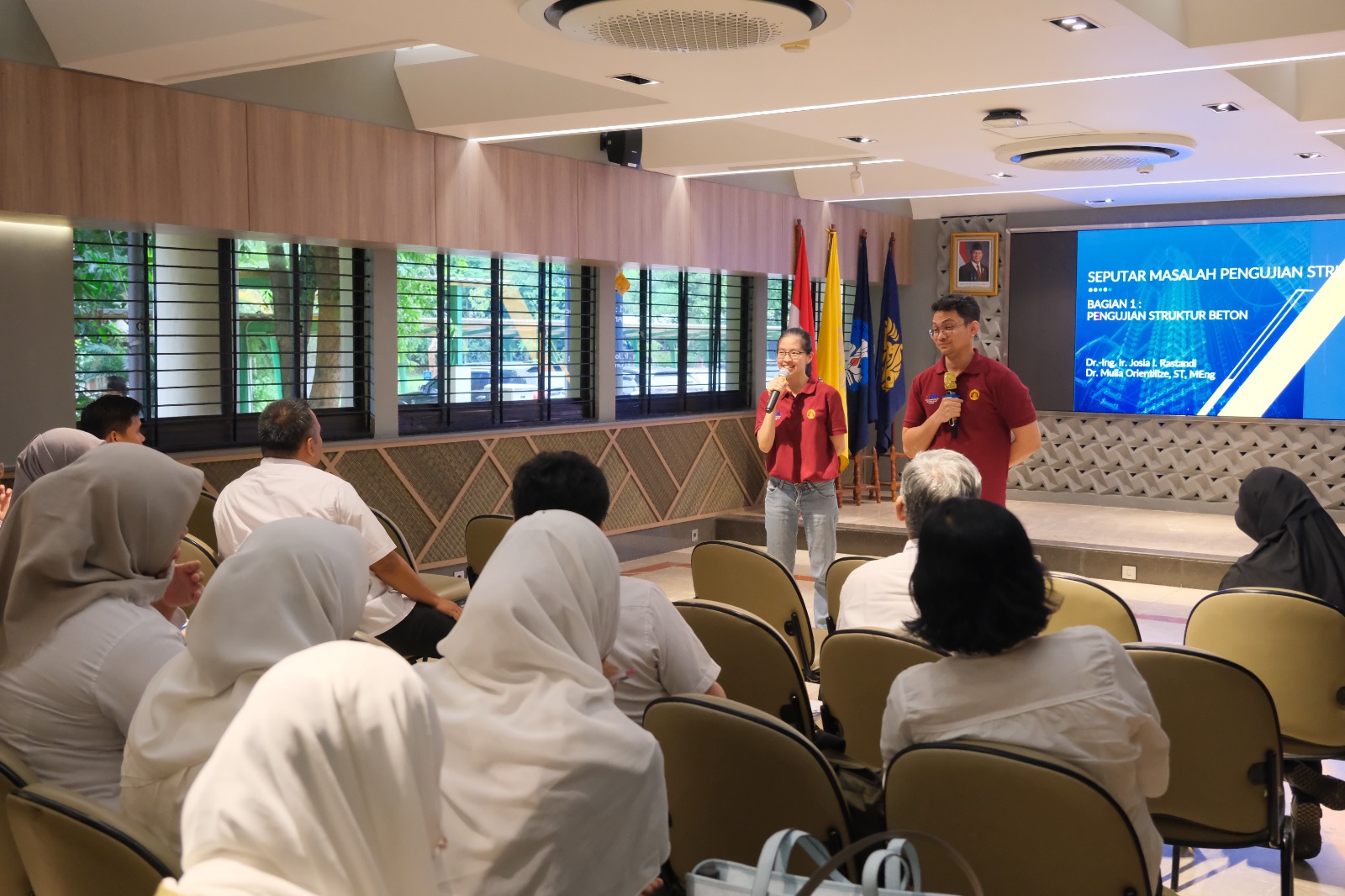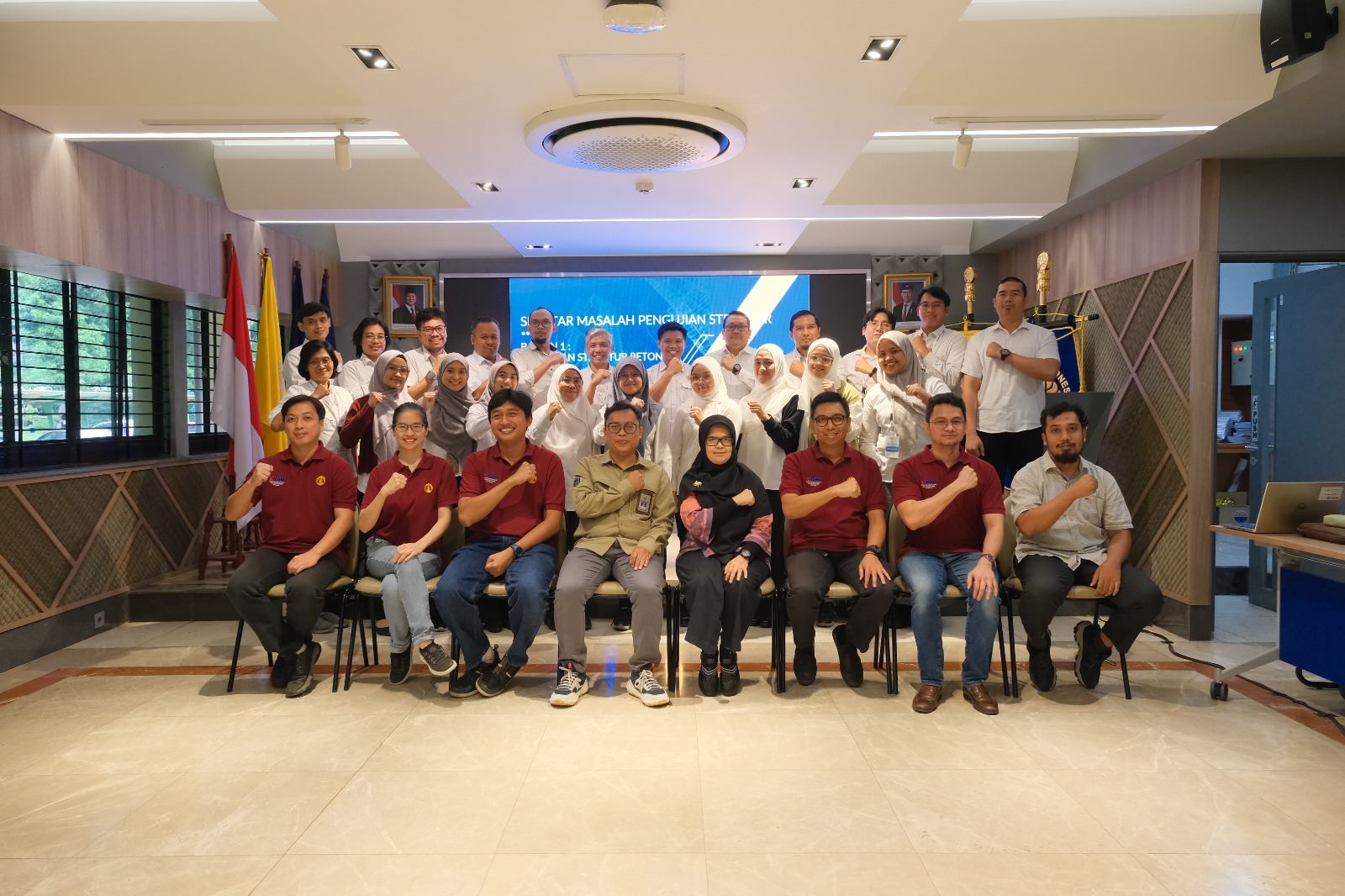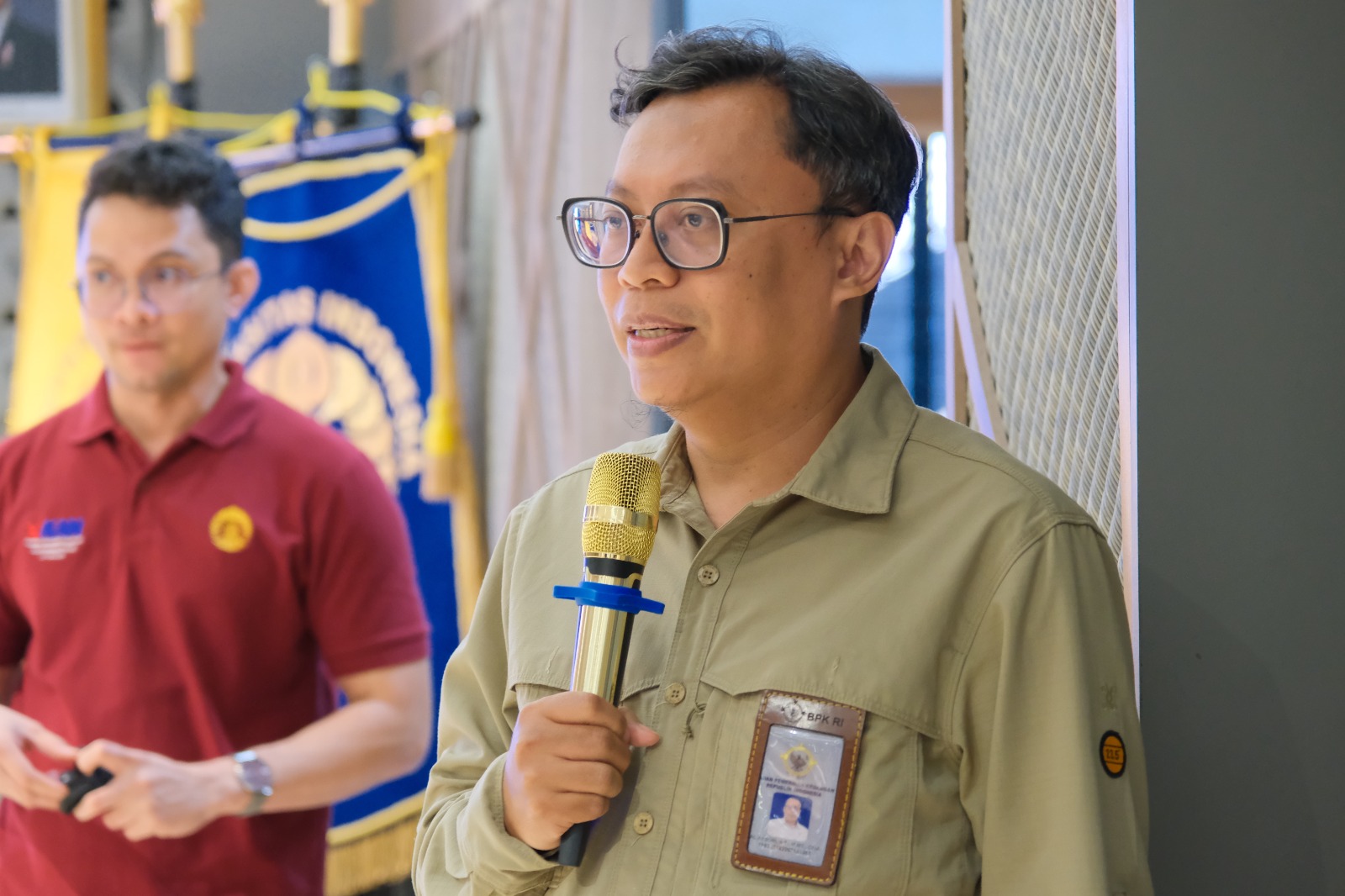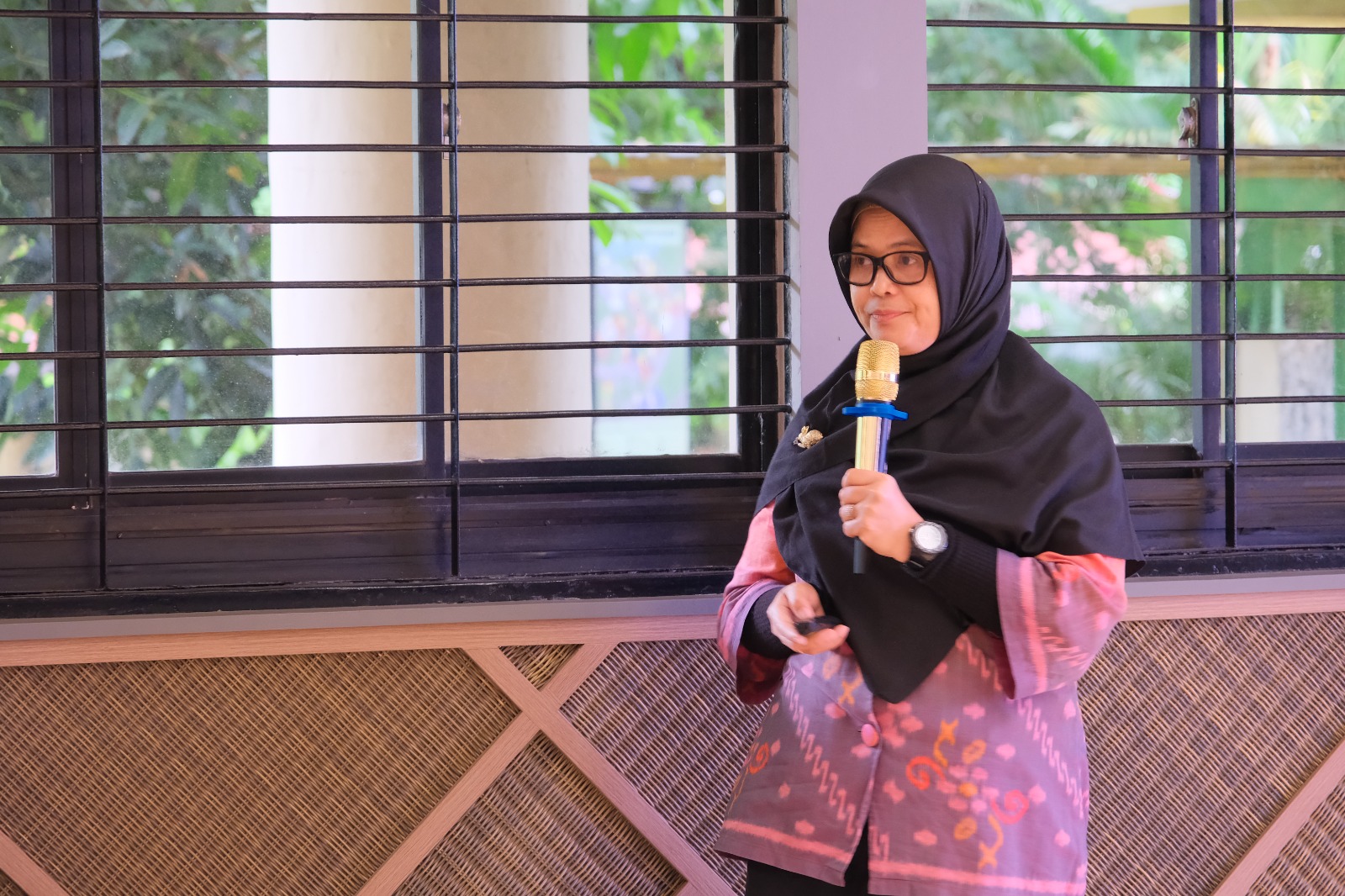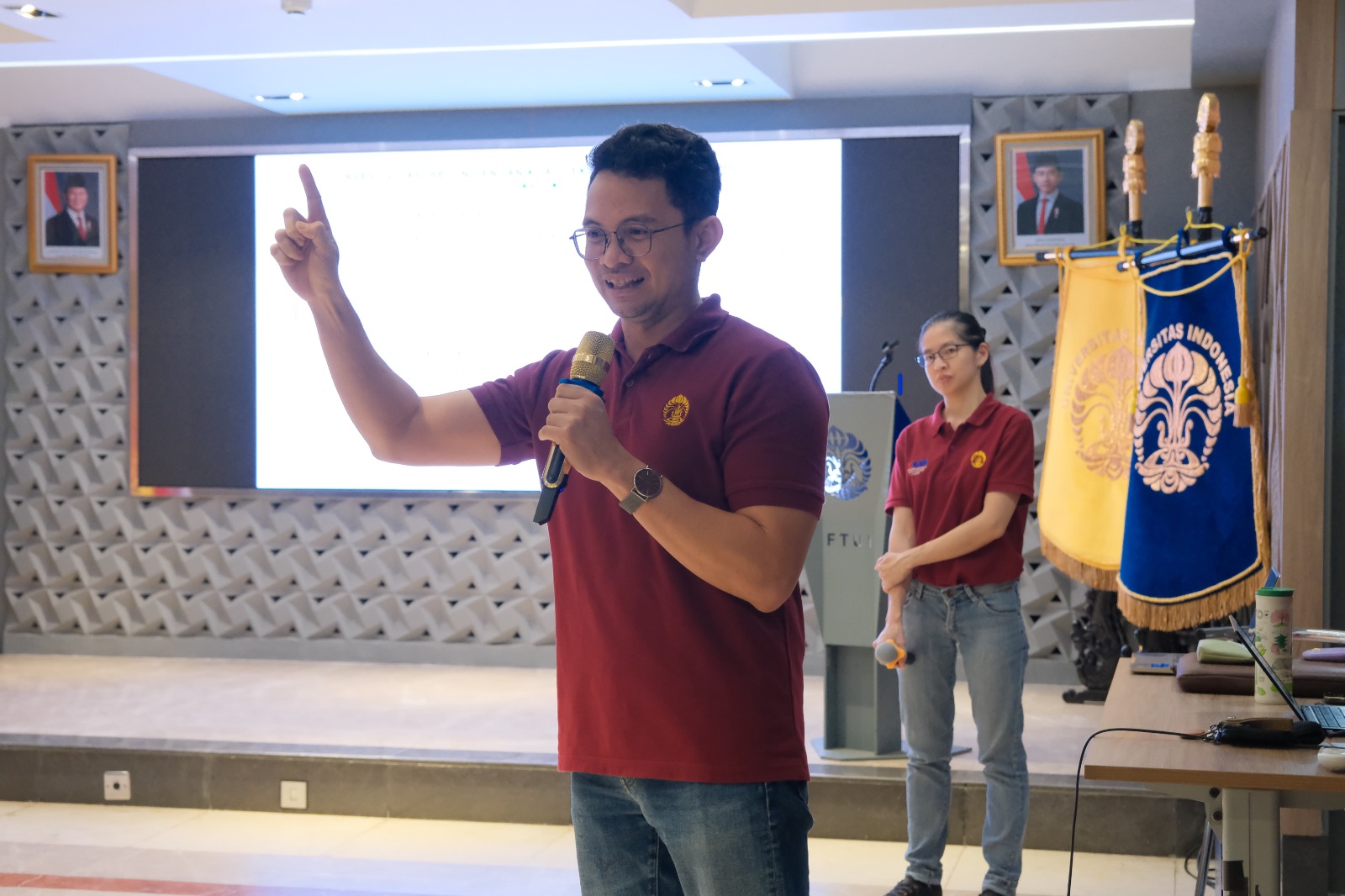The training was held in the Smart Meeting Dean’st the FTUI Dean’s Office, and 25 participants attended it. Its primary objective was to equip participants with a comprehensive understanding of methodologies and reporting for construction quality testing performed by civil/construction experts, following relevant standards. This is expected to enhance the effectiveness of investigative audits and/or calculations of state losses. The training was led by Dr. Jessica Sjah, S.T., M.T., M.Sc., and Dr. Dipl.-Ing Nuraziz Handika, S.T., M.T., M.Sc., from the Department of Civil Engineering at FTUI.
The training was divided into two sessions: Session 1: Practical Testing. Participants, grouped into five teams, conducted hands-on testing across six stations: UCT, Covermeter, GPR testing, Steel tensile strength, steel bending strength, and Brinell hardness testiConcreterete and paving compressive strength testing, Core drill, UPV, Hammer, and Windsor PIN testing, Asphalt and road quality testing, and Sondir and field CBR testing.
Meanwhile, in Session 2: Expert Presentations, two speakers from the Department of Civil Engineering, FTUI, shared their expertise. Prof. Dr. Ir. Sigit Pranowo Hadiwardoyo, DEA discussed Issues in Road Infrastructure Testing and Dr. Mulia Orientilize, S.T., M.Eng. covered Structural Testing Challenges.
Prof. Sigit began by explaining the classifications of roads based on their status, dividing them into five categories under public roads: national, provincial, regency, village, and city roads. Additionally, special roads, constructed by institutions, businesses, or individuals for private purposes, were addressed.
He highlighted the General Specifications 2018 for Road and Bridge Construction Works as a technical reference for ensuring consistent implementation, quality control, and accountable payments in road and bridge projects. Prof. Sigit delved into asphalt paving, discussing materials, mixing requirements, equipment, production processes, spreading, quality control, field inspections, and measurement standards.
Dr. Mulia focused on structural testing, emphasizing the quality and acceptanceConcreterete. He highlighted the benefitsConcreterete as a durable material with high compressive strength and resistance to corrosion and decay, making structures more cost-effective and long-lasting.
However, he also noted real-world issues, such as shorter structure lifespans and higher reinforcement costs, caused by poor-quality concrete. Dr. Mulia detailed destructive (compressive and tensile strength tests) and non-destructive (Ultrasonic Concrete Tomography Ultrasonic Pulse Velocity, Covermeter, and Brinell Hardness) methods for concrete testing. He stressed the importance of preventive measures and adherence to standards to maintain concrete quality.
In his closing remarks, Dr. Al Ansori, S.T., M.MT., CFrA, IPM, ASEAN.Eng., a junior trainer from Badiklat PKN, expressed gratitude to FTUI for the knowledge shared during the session”n.
“Thank you, FTUI’s Civil Engineering Department, for the insights and expertise provided. We often encounter specific cases, so this training helps us gain the perspectives needed to find solutions. We hope to continue developing related research together,” he said.
***
Public Communication Office
Faculty of Engineering, Universitas Indonesia

